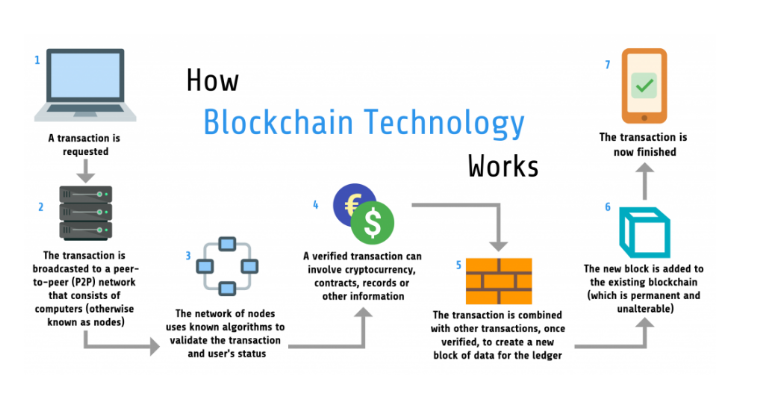
In recent years, blockchain technology has gained significant attention and adoption across various industries. Its potential to revolutionize processes and bring about transparency, security, and efficiency has made it a game-changer in the world of technology. One of the most prominent applications of blockchain technology is in the field of cryptocurrency. This article explores the various blockchain and cryptocurrency solutions that are transforming industries.
1. Secure Transactions
One of the key benefits of blockchain technology is its ability to ensure secure transactions. With traditional financial systems, transactions can be susceptible to fraud, hacking, and manipulation. However, blockchain provides a decentralized, immutable ledger that records every transaction. This makes it virtually impossible for any malicious activity to occur without detection. Cryptocurrencies like Bitcoin and Ethereum leverage blockchain technology to provide secure and transparent transactions.
2. Smart Contracts
Smart contracts are another significant application of blockchain technology. These are self-executing contracts that are coded to automatically execute when certain conditions are met. The use of smart contracts eliminates the need for intermediaries, reducing costs and increasing efficiency. For example, in the real estate industry, smart contracts can automate the process of buying and selling properties, eliminating the need for lawyers and escrow agents.
3. Supply Chain Management
Blockchain technology has the potential to revolutionize supply chain management. With blockchain, every stage of the supply chain can be tracked and recorded, ensuring transparency and accountability. This helps in reducing counterfeit products, improving traceability, and enhancing overall efficiency. Companies like IBM are already utilizing blockchain technology to create transparent and secure supply chains.
4. Decentralized Finance (DeFi)
Decentralized Finance, or DeFi, is a rapidly growing sector that aims to disrupt traditional financial intermediaries. DeFi utilizes blockchain technology to democratize financial services, providing access to banking, lending, and investment opportunities to anyone with an internet connection. It eliminates the need for banks and other intermediaries, making financial services more accessible and affordable.
5. Healthcare Records
Healthcare records are highly sensitive and require secure and efficient management. Blockchain technology can provide a solution by ensuring the privacy and security of healthcare records. With blockchain, patients can have control over their data, granting access to healthcare providers as needed. This reduces the chances of unauthorized access, prevents tampering of records, and facilitates seamless sharing of information among healthcare professionals.
6. Identity Management
Traditional methods of identity management often face challenges related to security and privacy. Blockchain technology can address these challenges by providing a decentralized and tamper-proof identity management system. Individuals can have control over their personal data, giving out only the necessary information for specific purposes. This reduces identity theft and enhances security in various sectors, including banking, healthcare, and government services.
7. Internet of Things (IoT)
The integration of blockchain technology and the Internet of Things (IoT) has the potential to create a secure and decentralized network for IoT devices. Blockchain can securely record and verify the interactions between IoT devices, enabling secure data exchange and peer-to-peer communication. This eliminates the need for centralized control, making IoT networks more secure and less vulnerable to hacking.
8. Voting Systems
Blockchain-based voting systems can ensure transparent and tamper-proof elections. By using blockchain technology, the integrity of votes can be maintained, and voter fraud can be minimized. Each vote is recorded on the blockchain, making it immutable and publicly verifiable. This brings trust and transparency to the election process, enhancing democracy and accountability.
Conclusion
Blockchain technology and cryptocurrencies are transforming various industries by providing secure, transparent, and efficient solutions. From secure transactions to decentralized finance and healthcare record management, the potential applications of blockchain technology are immense. As industries continue to realize the benefits of blockchain, its adoption is expected to accelerate, reshaping the way we conduct business and interact with technology.

